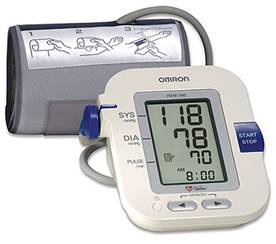According to a study by Rhonda M. Cooper-DeHoff, Pharm.D., M.S., of the University of Florida, Gainesville, and colleagues, tight Blood Pressure Control less than 130mm Hg is associated with worse outcomes for patients with Diabetes and Heart Disease.
The researchers selected 6,400, out of the 22,576 participants in the International Verapamil SR-Trandolapril Study (INVEST) who were at least 50 years old and had diabetes and CAD (coronary artery disease). Participants were recruited between September 1997 and December 2000 from 862 sites in 14 countries and were followed up through March 2003, with an extended follow-up through August 2008 through the National Death index for U.S. participants.
Patients were grouped into three categories; tight control group if they could maintain their systolic BP at less than 130 mm Hg; usual control group if systolic BP ranged from 130 mm Hg to higher by use of less than 140 mm Hg; and uncontrolled group if systolic BP was 140 mm Hg. The patients were treated with either a calcium antagonist or beta-blocker followed by angiotensin-converting enzyme inhibitor, a diuretic, or both.
The primary outcome included the occurrence of all-cause death, nonfatal myocardial infarction (heart attack), or nonfatal stroke. Study results show that primary outcome occurred in 12.7 percent (286 patients) of those in the tight-control group, 12.6 percent (249 patients) of the usual-control group, and 19.8 percent (431 patients) of the uncontrolled groups. When evaluating all-cause mortality for the entire follow-up period, after adjustment, risk of all-cause mortality was significantly higher in the tight-control group (22.8 percent) than in the usual-control group (21.8 percent).
With the available strong evidences from the recently emerging data, blood pressure should be normalised, but maintaining too low may be hazardous.
The ACCORD study data also confirms that intensive blood pressure control does not prevent adverse cardiovascular events.
|
 |
